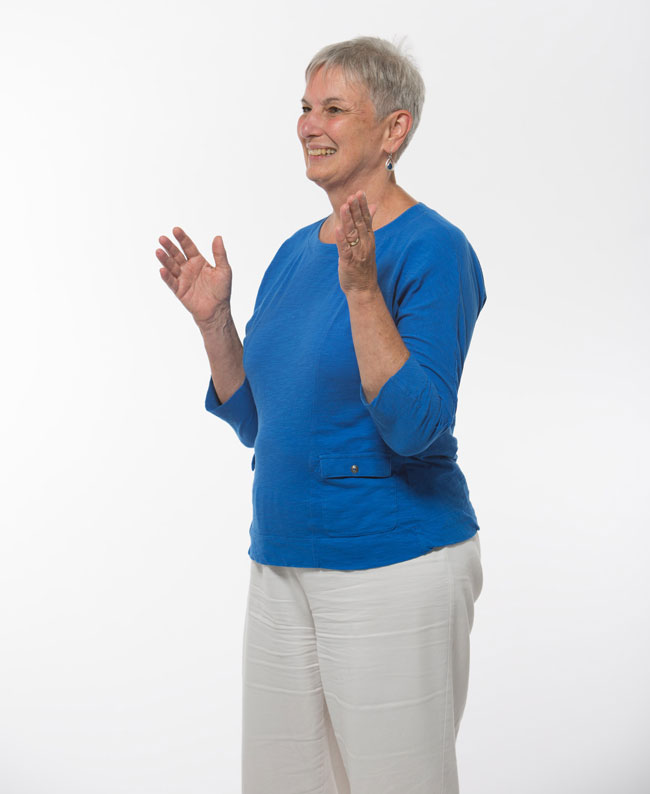Kids in Context
At a local burger establishment, 17-year-old Lisa* orders a drink and fills her cup at the soda machine. It’s a routine act for many teenagers, but performing this task without assistance is a milestone for Lisa, whose ultimate goal is to participate more fully in community living. Lisa and five other Boston-area youth with intellectual disabilities are taking part in field research for a survey development project conducted by Kendra Liljenquist (’15), who recently graduated with a PhD from Sargent’s program in Rehabilitation Sciences.

Throughout the summer, Liljenquist takes the youth on trips to a restaurant, a bowling alley, a pottery class, and the Museum of Science, Boston, where they engage in activities that are new to them. Liljenquist documents these outings with photographs, and after each trip, interviews the youth about their experiences. The tool she has developed to record their impressions—the Participatory Experience Survey—features 20 questions, such as, “Did you do something by yourself today?” and “Was anything too hard today?” When Liljenquist asks Lisa to choose the photo that depicts her favorite activity of the day, the teen beams with pride as she selects the image of herself at the soda machine.
“When kids participate in activities like clubs or sports, they’re given the opportunity to develop skills that lead to successful transition into adulthood,” says Liljenquist, who intends for the Participatory Experience Survey to help minority youth with intellectual disabilities—particularly those in disadvantaged circumstances—become more involved in school and other social activities.
Developed for those in the “transition ages” of 12 to 22, the tool will assist service providers—occupational therapists, special education teachers, and recreational therapists—to determine whether the young people have participated in various aspects of an activity, including being independent, working with their peers, and engaging in key developmental activities such as collaboration and planning. The survey will also help researchers and service providers better understand how different environments promote growth and will assist schools and community organizations in becoming more inclusive.
Liljenquist’s survey is the first tool to provide youth with intellectual disabilities the opportunity to self-report their impressions and experiences. Current self-report measures are often not accessible to individuals who may have difficulty with abstract thinking. “You’re asking people with cognitive challenges to report on how they’re thinking, so you have to conduct testing in a different way,” says Liljenquist’s mentor, Professor Wendy Coster, chair of the occupational therapy department and director of the Kids in Context Lab. Liljenquist’s survey is intended to be conducted in interview format—no reading required—“to be as accessible as possible to young people with a wide range of abilities,” says Liljenquist. “You can’t ask for a survey of people who can’t understand the questions.” Her tool forgoes the rating scales common in many instruments and features straightforward questions, asking participants to respond with either “yes” or “no.”

Liljenquist’s fieldwork was invaluable to designing the survey. “She’s not developing something in the lab and taking it to the community,” says Coster. “Instead, she went to the community and developed something that from the beginning is there to meet their needs.” Liljenquist conducted field research and observation, gathered feedback from parents and practitioners, and asked the survey-takers for input. She conducted in-depth interviewing to check the participants’ understanding of each question, and she was mindful to include youth of varying ages, backgrounds, and disabilities. “It’s important to ensure we’re not disenfranchising people,” Coster says.
Liljenquist is now implementing the tool with organizations like Seattle Parks and Recreation, which has asked her to evaluate their youth sport and teen activity programs and expand the measure to adult populations. And the Special Olympics Washington has expressed interest in working with Liljenquist to assess its unified sports program. She plans to broaden the public’s access to the survey by making it available for free download through Canada’s CanChild Centre for Childhood Disability Research, an organization with which Coster and her lab regularly collaborate. Coster credits Liljenquist’s skill in cultivating relationships and developing trust among service providers and the youth they serve as a key reason for the tool’s success.
*Name changed for privacy
Development of the Participatory Experience Survey was supported by Boston University’s Department of Occupational Therapy and School of Education, Harvard Graduate School of Education, Boston Children’s Hospital, and the Center on Human Development and Disability at the University of Washington. It is aided by a grant from the Dudley Allen Sargent Research Fund.